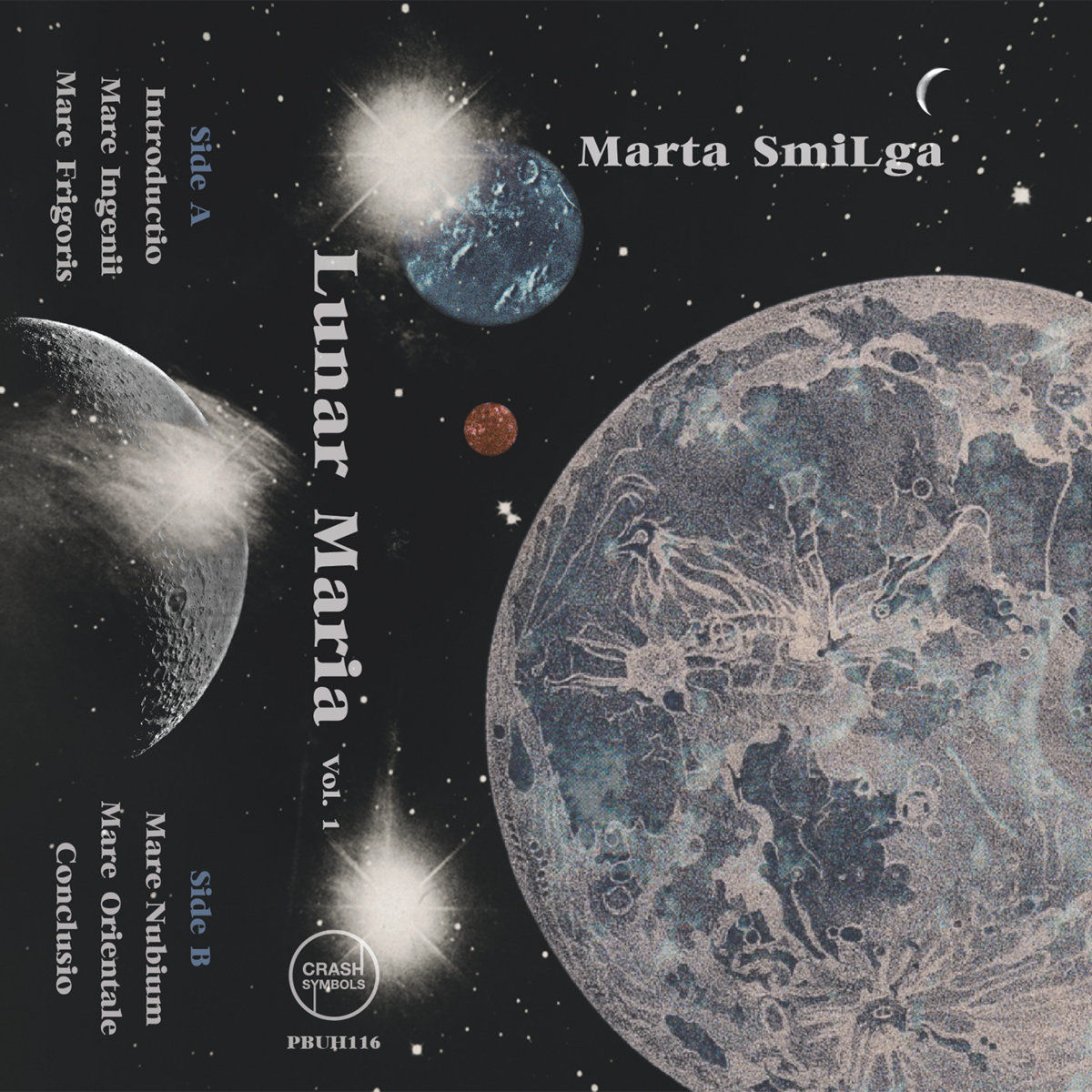«'Lunar Maria' was created in Marta SmiLga's home studio on a barge in Riga across many cold autumn nights, when the sky was clear, full of shimmering stars and bright, embracing moonlight». ~ crash symbols
When I saw this tape for a moment my thought was "oh, new Lunar Miasma album!", probably because this is something that is not going to happen anymore and I was a huge fan of those psych drone analogue synth space excursions from Panos Alexiadis. But it's from Latvia this time, and Marta SmiLga is surely are well-experienced synth explorer – so when I listened to this album, it seemed like I'm there again, on this nostalgic road towards stars... Guide has changed, but the space is the same. The pace is slow, not much of psychedelia is going on, we are experiencing more thorough and scientific approach. Yet, it's as breathtaking as it was when I was five and saw an astronomy textbook for the first time... Yellowed pages with galaxies, planets, comets, asteroids and of course – lunar map. Gasping admiration. I remember telling my mom that there are seas on the Moon (and even one ocean!), but those are not real seas and that Lunokhod went there and people went there, and... And she was saying okay, okay, good... Ten years later I was out every clear night, sitting with my self-made telescope, sketching lunar surface in my observations journal, all those craters, mountains and seas – watching how shadow slowly changes the picture on the edge of light and dark...
Yes, music can provoke a lot of nostalgia! And that's the beauty of it, the miracle of memory and perception. Listening to slowly changing delicate compositions on this tape brings this subtle feeling of childish excitement mixed with awe and admiration, which was probably best captured in Kubrick's Space Odyssey. Gazing into a deepness of the Universe and realizing equal profoundness of your own mind. It's perfectly reflected by ringing resonance of Marta SmiLga's drones and tiny detailed veils of microsounds around them. Thin surface of events around barely perceived vastness makes all the sense. No matter how cold or dark space is, our mind finds it strangely attractive because it mirrors something inside us, because we are same thing... And same thing happens with music here. Isn't it wonderful?



No comments:
Post a Comment